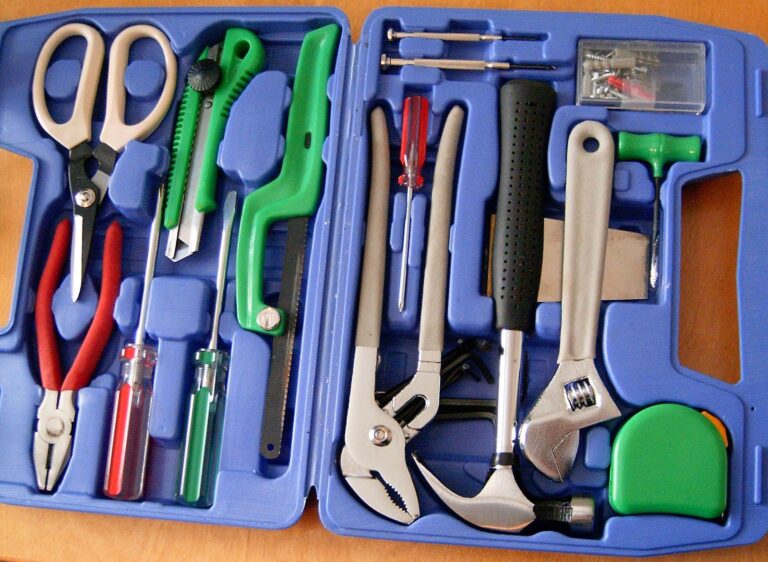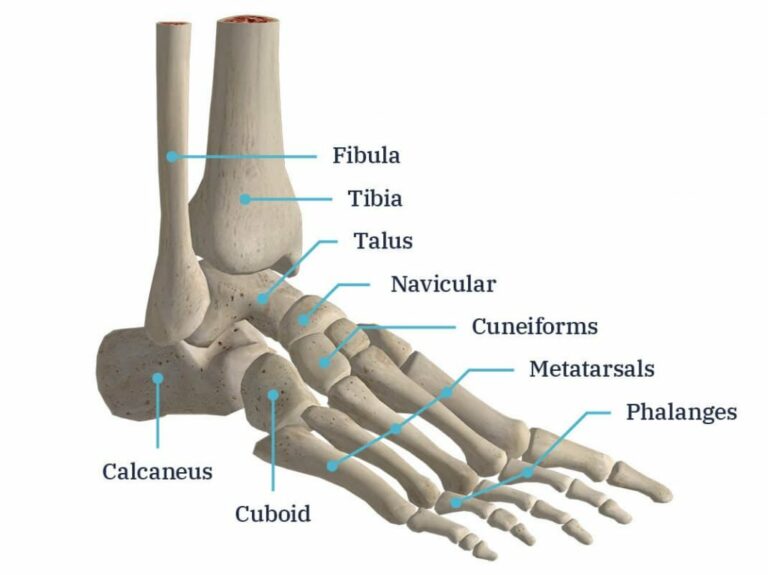Bank Repo Semi Trucks For Sale: Unlocking Value in the Heavy-Duty Market
Bank Repo Semi Trucks For Sale: Unlocking Value in the Heavy-Duty Market cars.truckstrend.com
Introduction: The Road Less Traveled to Affordable Power
In the demanding world of commercial trucking, acquiring reliable heavy-duty vehicles represents a significant capital expenditure. Whether you’re an independent owner-operator looking to expand your fleet, a small business aiming to cut costs, or even a larger enterprise seeking opportunistic deals, the price tag on new or even used semi trucks can be daunting. This is where the concept of "Bank Repo Semi Trucks For Sale" enters the picture, offering a compelling alternative that can significantly reduce acquisition costs.
Bank Repo Semi Trucks For Sale: Unlocking Value in the Heavy-Duty Market
Bank repo semi trucks are commercial vehicles that have been repossessed by financial institutions – banks, credit unions, or specialized lending companies – due to the borrower’s default on their loan obligations. When a loan goes unpaid, the lender exercises its right to reclaim the collateral, which in this case, is the semi truck. Their primary objective is not to operate a trucking fleet, but to recover their outstanding investment as quickly and efficiently as possible. This urgency often translates into competitive pricing for potential buyers, making these repossessed assets a hidden gem in the used truck market. While the prospect of substantial savings is undeniably attractive, navigating the bank repo market requires a strategic approach, thorough due diligence, and a clear understanding of the unique dynamics involved. This comprehensive guide aims to illuminate every facet of acquiring bank repo semi trucks, helping you make informed decisions and drive away with a valuable asset.
Understanding Bank Repossessions: What Exactly Are They?
A bank repossession occurs when a borrower fails to meet the terms of their financing agreement, typically by missing multiple loan payments. The lender, having a lien on the vehicle, legally reclaims it. Once repossessed, the bank’s goal is to liquidate the asset to recoup as much of the outstanding loan balance as possible. They are not in the business of holding inventory, so they aim for a swift sale.
The condition of a repossessed truck can vary wildly. Some may be almost new with low mileage, repossessed due to a sudden financial downturn of a previously successful operation. Others might be older, well-worn, and potentially neglected, reflecting prolonged financial distress or operational issues of the previous owner. This inherent variability is both the challenge and the opportunity of the repo market. The key is to distinguish between a genuine bargain and a potential money pit, which hinges entirely on rigorous inspection and informed decision-making.
The Allure of Repo Trucks: Why Consider Them?
The appeal of bank repo semi trucks is multifaceted, primarily centered around economic advantages:
- Significant Cost Savings: This is the most compelling reason. Repo trucks are typically sold at prices considerably below their market value – often 20% to 40% less than comparable trucks sold through traditional dealerships. Banks prioritize quick recovery over maximizing profit on individual sales, passing on savings to the buyer.
- Faster Acquisition: Unlike ordering a new truck, which can involve long lead times, repo trucks are available immediately. This can be crucial for businesses needing to quickly replace a vehicle or expand their capacity without delay.
- Variety of Makes and Models: The repo market reflects the diversity of the broader trucking industry. You can find various makes (Freightliner, Peterbilt, Kenworth, Volvo, International, Mack, etc.), models, configurations (day cabs, sleeper cabs, vocational trucks), and engine types, offering a wide selection to match specific operational needs.
- Potential for Good Condition: Not every repossession is a result of neglect. Many are due to economic downturns, business closures, or unforeseen financial hardships faced by the previous owner. This means you can sometimes find well-maintained, relatively new trucks that are simply being sold off quickly by the bank.

Navigating the Market: Where to Find Bank Repo Semi Trucks

Finding these opportunities requires knowing where to look beyond traditional dealerships:
- Bank Websites and Repo Departments: Some larger banks and credit unions that finance commercial vehicles will list their repossessed assets directly on their websites, often under a "repo" or "foreclosure" section. This can be a direct line to the seller, potentially allowing for direct negotiation.
- Repossession Auctions: This is perhaps the most common channel. Major auction houses specializing in heavy equipment (e.g., Ritchie Bros. Auctioneers, IronPlanet, Purple Wave) frequently feature bank-repossessed trucks. Smaller, local auctioneers might also have them. Be aware that some auctions are "dealer-only," while others are open to the public.
- Specialized Online Marketplaces: Websites like EquipmentFacts, TruckPaper (though mostly dealer listings, some repo companies use it), and GovDeals (for government surplus, but sometimes includes repossessed vehicles from government-backed loans) aggregate listings from various sources, including repo companies.
- Repossession Companies/Brokers: Banks often contract with third-party repossession and asset management companies to handle the seizure and sale of vehicles. These companies may have their own websites or work with brokers who specialize in selling repossessed heavy equipment.
- Used Truck Dealerships: Some dealerships actively acquire repo trucks from banks or auctions, perform necessary reconditioning, and then sell them with a mark-up. While you might pay a bit more, you could also get a reconditioned truck with some level of dealer assurance.

The Due Diligence Checklist: What to Inspect Before Buying
This is arguably the most critical step. Since most repo trucks are sold "as-is, where-is" with no warranties, your pre-purchase inspection is your only safeguard.
- Professional Mechanical Inspection: Do not skip this step. Hire a certified heavy-duty mechanic specializing in semi trucks to perform a thorough pre-purchase inspection. This should include:
- Engine: Compression test, oil analysis, check for leaks, abnormal noises, DPF system health.
- Transmission: Fluid condition, shifting smoothness, clutch operation (manual).
- Brakes: Pads, drums/rotors, air system integrity.
- Tires: Tread depth, uneven wear, age.
- Suspension: Airbags, leaf springs, shocks, bushings.
- Electrical System: Lights, gauges, wiring, ECM diagnostics.
- Fluid Levels and Condition: Oil, coolant, hydraulic fluid.
- Maintenance Records: Request any available service history. While often sparse or non-existent for repo trucks, a complete record is a golden find.
- Title and Lien Check: Verify that the title is clear and that there are no outstanding liens on the truck. Use services like VIN check websites (e.g., NICB, Carfax for commercial vehicles if applicable) or state DMV records.
- Physical Condition: Inspect the exterior for body damage, rust, frame integrity, and signs of accidents. Check the interior for wear, damage, and functionality of all controls and instruments.
- Odometer Verification: Ensure the odometer reading is consistent with the truck’s apparent wear and any available records.
- DOT Compliance: Evaluate if the truck appears capable of passing a Department of Transportation (DOT) inspection without major immediate repairs.
- Test Drive (If Possible): While often not an option at auctions, if buying directly from a bank or broker, request a test drive to assess handling, braking, and overall performance.
The Buying Process: A Step-by-Step Guide
- Research and Budgeting: Define your specific needs (sleeper/day cab, engine size, mileage range, specific make/model) and set a strict maximum budget, including potential repair costs.
- Locate Inventory: Utilize the sources mentioned above to find suitable trucks.
- Pre-Purchase Inspection: Once a promising candidate is found, arrange for the thorough inspection detailed above. This cost is well worth it.
- Bidding/Negotiating:
- Auctions: Understand the auction rules (buyer’s premium, payment terms, removal deadlines). Stick to your pre-determined maximum bid.
- Direct Sales: Negotiate respectfully but firmly. Banks are motivated sellers.
- Financing: Secure financing in advance if needed. Traditional lenders might be hesitant with "as-is" repo sales, so explore specialized heavy equipment lenders who understand the market.
- Payment and Pickup: Arrange for full payment (often wire transfer for large sums) and timely pickup of the truck.
- Title Transfer and Insurance: Promptly transfer the title into your name and secure appropriate commercial insurance before operating the vehicle.
Potential Challenges and How to Mitigate Them
While attractive, the repo market comes with inherent risks:
- "As-Is, Where-Is" Sales: This is the standard. You accept the truck in its current condition with no recourse. Mitigation: Thorough professional inspection is paramount.
- Unknown History: Lack of maintenance records or knowledge of the truck’s operational history is common. Mitigation: Rely heavily on your mechanic’s assessment and budget for the unknown.
- Hidden Defects: Even the best inspection can miss subtle issues that only emerge after prolonged operation. Mitigation: Factor in a contingency budget for post-purchase repairs, perhaps 10-20% of the purchase price.
- Transportation Costs: If the truck is located far away, factor in the cost of transporting it to your base or a repair facility.
- Competition: Highly desirable trucks, especially newer models in good condition, can attract significant competition, driving prices closer to market value. Mitigation: Be patient, be quick to act when a good deal appears, and don’t get caught in a bidding war that exceeds your budget.
Tips for Success in the Repo Market
- Be Patient, But Ready to Act: Good deals are rare and move fast. Have your financing pre-approved and your mechanic on standby.
- Know Your Limits: Stick to your budget, including potential repair costs. Don’t let the allure of a "deal" push you into an unwise investment.
- Network: Build relationships with reputable heavy-duty mechanics, truck brokers, and even other owner-operators who have experience with repo purchases.
- Factor in Post-Purchase Costs: Beyond the purchase price, budget for immediate maintenance (fluids, filters, basic tune-up), DOT inspection, registration, and insurance.
- Consider Your Own Mechanical Aptitude: If you or your team have strong mechanical skills, a truck needing some work can be an even deeper discount opportunity.
Illustrative Bank Repo Semi Truck Price Ranges
Please note: These prices are highly illustrative and subject to change based on market conditions, make, model, engine type, mileage, specific condition, location, and demand. Always conduct thorough due diligence.
| Truck Type/Age (Example) | Estimated Market Value (Non-Repo) | Estimated Repo Price Range | Potential Savings | Key Considerations |
|---|---|---|---|---|
| 2018-2020 Day Cab (Good) | $45,000 – $65,000 | $30,000 – $50,000 | 20-30% | Lower mileage, minor wear. Check engine hours, emissions systems, and electronic logs. |
| 2018-2020 Sleeper (Good) | $60,000 – $85,000 | $45,000 – $70,000 | 15-25% | Good overall condition, but high mileage might be a factor. Inspect interior wear and HVAC. |
| 2015-2017 Day Cab (Fair) | $30,000 – $45,000 | $20,000 – $35,000 | 25-35% | Higher mileage, cosmetic imperfections, potential for minor mechanical repairs. Inspect frame. |
| 2015-2017 Sleeper (Fair) | $40,000 – $60,000 | $28,000 – $48,000 | 25-30% | Expect some wear and tear. Critical inspection of drivetrain and suspension components. |
| 2010-2014 Any (Needs Work) | $15,000 – $30,000 | $8,000 – $20,000 | 30-45% | Suitable for buyers with significant mechanical expertise or established repair shops. Major repairs likely. |
| Note: Prices can fluctuate significantly based on brand reputation, engine type (e.g., Cummins vs. Detroit), transmission type (manual vs. automatic), and specific features. Always factor in potential repair costs. |
Frequently Asked Questions (FAQ) About Bank Repo Semi Trucks
Q1: Are bank repo trucks always cheaper than buying from a dealer?
A1: Generally, yes, they are sold at a discount because banks prioritize quick asset recovery over maximizing profit. However, the true cost depends on the truck’s condition and any necessary post-purchase repairs. A "cheap" truck needing extensive work might end up costing more than a slightly more expensive, well-maintained one from a dealer.
Q2: Can I finance a bank repo semi truck?
A2: Yes, it’s possible. However, traditional lenders might be more cautious due to the "as-is" nature of the sale and potentially limited history. It’s often easier to secure financing through specialized heavy equipment lenders who understand the repo market. Having a strong credit history and a clear business plan helps.
Q3: Do bank repo trucks come with any warranty?
A3: Almost never. Bank repo trucks are virtually always sold "as-is, where-is," meaning you buy them in their current condition with no guarantees or warranties from the seller. This underscores the critical importance of a thorough pre-purchase inspection.
Q4: How quickly do I need to act when I find a good repo deal?
A4: Very quickly. Desirable repo trucks, especially those in good condition, attract a lot of interest and can sell within hours or days, particularly at auctions. Be prepared to move fast with financing and inspection arrangements.
Q5: What’s the biggest risk associated with buying a bank repo truck?
A5: The biggest risk is purchasing a "lemon" – a truck with significant hidden mechanical issues that were not apparent during a cursory inspection. This can lead to unexpected and costly repairs, negating any initial savings. This risk is mitigated by an exhaustive professional pre-purchase inspection.
Q6: Can I see and inspect the truck before bidding or buying?
A6: In most cases, yes, especially if buying directly from a bank or a broker. For auctions, there are usually specific inspection periods (preview days) where you can view the truck, though test drives might not be allowed. Always take advantage of any opportunity to inspect the vehicle.
Conclusion: A Smart Investment for the Informed Buyer
Bank repo semi trucks represent a unique segment of the heavy-duty vehicle market, offering substantial cost savings for the savvy buyer. While the allure of a lower price tag is undeniable, success in this arena hinges on a disciplined approach, unwavering commitment to due diligence, and a clear understanding of the "as-is" nature of these transactions.
By conducting thorough mechanical inspections, verifying vehicle history, and budgeting for potential post-purchase expenses, buyers can transform a repossessed asset into a profitable investment. The bank repo market is not for the faint of heart or the unprepared, but for the informed and meticulous buyer, it offers a powerful pathway to acquire essential equipment, enhance fleet capacity, and ultimately, drive their business forward on a more cost-effective road. With careful planning and execution, a bank repo semi truck can indeed be a valuable addition to your trucking operation, proving that sometimes, the best deals are found on the road less traveled.





